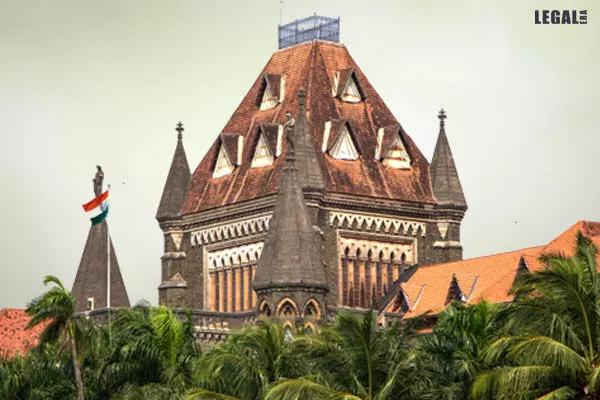- Home
- News
- Articles+
- Aerospace
- AI
- Agriculture
- Alternate Dispute Resolution
- Arbitration & Mediation
- Banking and Finance
- Bankruptcy
- Book Review
- Bribery & Corruption
- Commercial Litigation
- Competition Law
- Conference Reports
- Consumer Products
- Contract
- Corporate Governance
- Corporate Law
- Covid-19
- Cryptocurrency
- Cybersecurity
- Data Protection
- Defence
- Digital Economy
- E-commerce
- Employment Law
- Energy and Natural Resources
- Entertainment and Sports Law
- Environmental Law
- ESG
- FDI
- Food and Beverage
- Gaming
- Health Care
- IBC Diaries
- In Focus
- Inclusion & Diversity
- Insurance Law
- Intellectual Property
- International Law
- IP & Tech Era
- Know the Law
- Labour Laws
- Law & Policy and Regulation
- Litigation
- Litigation Funding
- Manufacturing
- Mergers & Acquisitions
- NFTs
- Privacy
- Private Equity
- Project Finance
- Real Estate
- Risk and Compliance
- Student Corner
- Take On Board
- Tax
- Technology Media and Telecom
- Tributes
- Viewpoint
- Zoom In
- Law Firms
- In-House
- Rankings
- E-Magazine
- Legal Era TV
- Events
- News
- Articles
- Aerospace
- AI
- Agriculture
- Alternate Dispute Resolution
- Arbitration & Mediation
- Banking and Finance
- Bankruptcy
- Book Review
- Bribery & Corruption
- Commercial Litigation
- Competition Law
- Conference Reports
- Consumer Products
- Contract
- Corporate Governance
- Corporate Law
- Covid-19
- Cryptocurrency
- Cybersecurity
- Data Protection
- Defence
- Digital Economy
- E-commerce
- Employment Law
- Energy and Natural Resources
- Entertainment and Sports Law
- Environmental Law
- ESG
- FDI
- Food and Beverage
- Gaming
- Health Care
- IBC Diaries
- In Focus
- Inclusion & Diversity
- Insurance Law
- Intellectual Property
- International Law
- IP & Tech Era
- Know the Law
- Labour Laws
- Law & Policy and Regulation
- Litigation
- Litigation Funding
- Manufacturing
- Mergers & Acquisitions
- NFTs
- Privacy
- Private Equity
- Project Finance
- Real Estate
- Risk and Compliance
- Student Corner
- Take On Board
- Tax
- Technology Media and Telecom
- Tributes
- Viewpoint
- Zoom In
- Law Firms
- In-House
- Rankings
- E-Magazine
- Legal Era TV
- Events
Bombay High Court: Right to Pension is a Fundamental Right & Cannot be Denied over Technicalities to Government Servants

Bombay High Court: Right to Pension is a Fundamental Right & Cannot be Denied over Technicalities to Government Servants
The Bombay High Court has emphasized that the right to pension is a valuable right vested with government servants which should not be denied on technical grounds.
The division judge’s bench of Justices GS Patel and Neela Gokhale, the presiding judges, emphasized that pensionary provisions should be interpreted liberally as a social welfare measure. The bench highlighted that pension is a valuable right granted to government servants to uphold their dignity during their post-retirement phase.
In the present case, the petitioner served as a professor of Pharmacy in the college from October 1999 to April 2009, with intermittent breaks due to the reserved nature of the post. The petitioner’s services were utilized during these breaks as no eligible candidate from the Scheduled Tribes (ST) category was appointed.
Subsequently, from July 2009 to September 2020, the petitioner rendered continuous service after being appointed in an open category vacancy.
However, the Directorate of Technical Education (DTE), Maharashtra denied the petitioner's post-retirement benefits, citing a shortage of 1 month and 16 days to meet the eligibility criteria for pension. The gap in service was attributed to technical breaks and vacations amounting to 674 days.
The Court firmly held that the DTE had erred in calculating the petitioner's qualifying service and unjustly deemed him ineligible for pension. It noted that the payment of salary during technical breaks implied a contractual relationship, and therefore, there was no actual gap in service.
Furthermore, the Court expressed disappointment with the college, university, and DTE for their failure to select an eligible candidate for the reserved category post. It criticized them for employing the petitioner as a stop-gap arrangement for a decade, strategically creating technical breaks to hinder the completion of the qualifying period for pension eligibility.
“The right of pension is a valuable right vested in a government servant. It is a social welfare measure as a post-retirement entitlement to maintain the dignity of an employee. Pensionary provisions must be given a liberal construction as a social welfare measure…the very basis for grant of pension must be kept in mind, i.e., to facilitate a retired government employee to live with dignity in the winter of his life and thus such benefit should not be unreasonably denied to an employee, more so on technicalities,” the Court observed.
Consequently, the Court allowed the petition and directed the respondents to disburse the petitioner's pension in accordance with the relevant rules and regulations.
Senior Advocate NV Bandiwadekar, instructed by Advocate Aditi Naikare, appeared on behalf of the petitioner, while Advocate Mahindra Deshmukh represented the respondent-college.
The State was represented by Additional Government Pleader (AGP) VM Mali.


